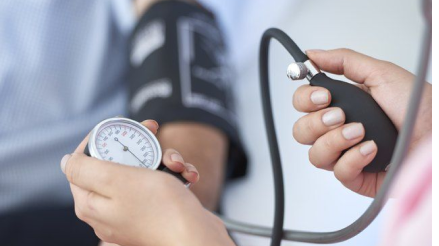You may also like…
Hypotension : Treatment
In the absence of noticeable symptoms, lower-than-normal blood pressure in a healthy individual often requires no intervention or treatment. However, when symptoms arise due to low blood pressure, the appropriate course of action depends on the underlying cause and the specific symptoms experienced.
If you experience symptoms related to a drop in blood pressure, it is advisable to promptly sit or lie down and elevate your feet above the level of your heart.
In cases of severe hypotension resulting from shock, immediate medical attention is crucial. Treatment may involve intravenous (IV) administration of blood, medications to elevate blood pressure and enhance heart function, as well as other medications, such as antibiotics, if necessary.
For individuals dealing with low blood pressure due to the rapid change in body position (orthostatic hypotension), potential treatments encompass:
Medication Adjustment: If medications are identified as the cause, your healthcare provider may alter the dosage or switch you to an alternative drug. It is essential not to discontinue any medications without consulting your healthcare provider.
Fluid Intake: Your healthcare provider may recommend increased fluid consumption as a means to address dehydration.
Compression Stockings: Wearing compression stockings can assist in preventing blood pooling in the legs, thereby promoting a higher blood volume in the upper body.
For those experiencing neurally mediated hypotension (NMH), strategies to manage symptoms include avoiding triggers, such as prolonged periods of standing. Additional measures may involve increasing fluid intake and incorporating more salt into your diet. It is crucial to consult your healthcare provider before implementing these measures. In severe instances, medications may be prescribed to manage NMH effectively.
Hypotension : Complications
Sudden severe drops in your blood pressure starves your body of oxygen. This can lead to damage of the heart, brain, and other organs. This type of low blood pressure can be life threatening if not treated right away. Some of the potential complications of hypotension include:
Dizziness and fainting (syncope): Low blood pressure can cause dizziness, lightheadedness, or even fainting when the brain does not receive enough blood and oxygen.
Falls due to low blood pressure in older adults can lead to a broken hip or spine fracture. These injuries can reduce a person’s health and ability to move about.
Fatigue: Inadequate blood flow to vital organs and muscles can lead to a feeling of extreme tiredness and weakness.
Cognitive impairment: Insufficient blood supply to the brain can result in difficulty concentrating, memory problems, and impaired cognitive function.
Chest pain: Low blood pressure may reduce the blood supply to the heart muscle, leading to chest pain or angina, especially in individuals with preexisting heart conditions.
Kidney dysfunction: Low blood pressure can reduce blood flow to the kidneys, potentially causing kidney dysfunction or damage.
Shock: Severe hypotension can lead to a medical emergency known as shock, where there is insufficient blood flow to vital organs, causing organ failure and, if left untreated, can be life-threatening.
Stroke: Hypotension can increase the risk of stroke, as it may reduce blood flow to the brain and lead to the formation of blood clots.
Falls and injuries: Dizziness and fainting episodes can result in falls and injuries, which can be especially concerning for older adults.
Complications during surgery: Low blood pressure can increase the risk of complications during surgical procedures, as it may reduce blood flow to vital organs.
Vision problems: Reduced blood flow to the eyes can lead to vision disturbances and even temporary vision loss.
Complications in pregnancy: Hypotension during pregnancy can be dangerous for both the mother and the developing fetus, potentially leading to preterm birth or growth restrictions.
Dehydration: Chronic hypotension may be associated with conditions that cause fluid loss, such as diarrhea or vomiting, which can lead to dehydration.
Powered by Froala Editor







